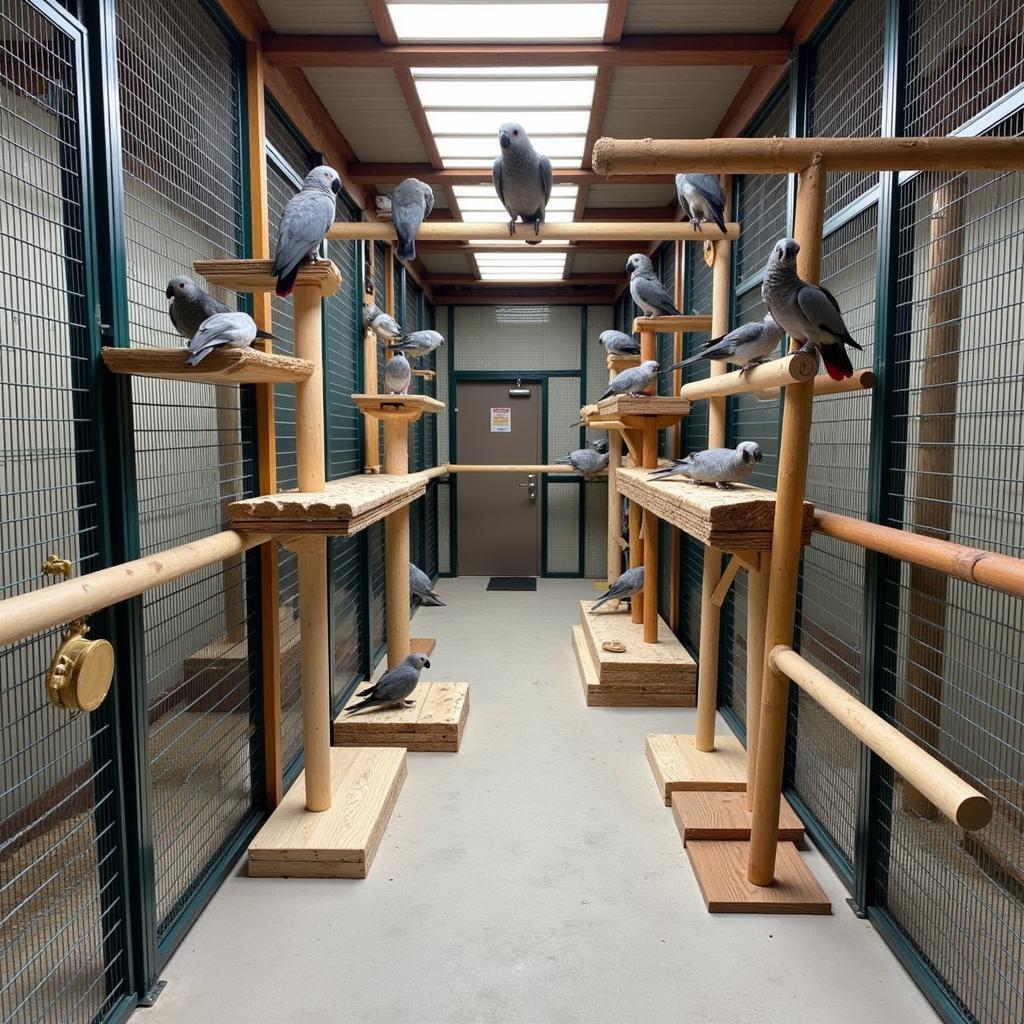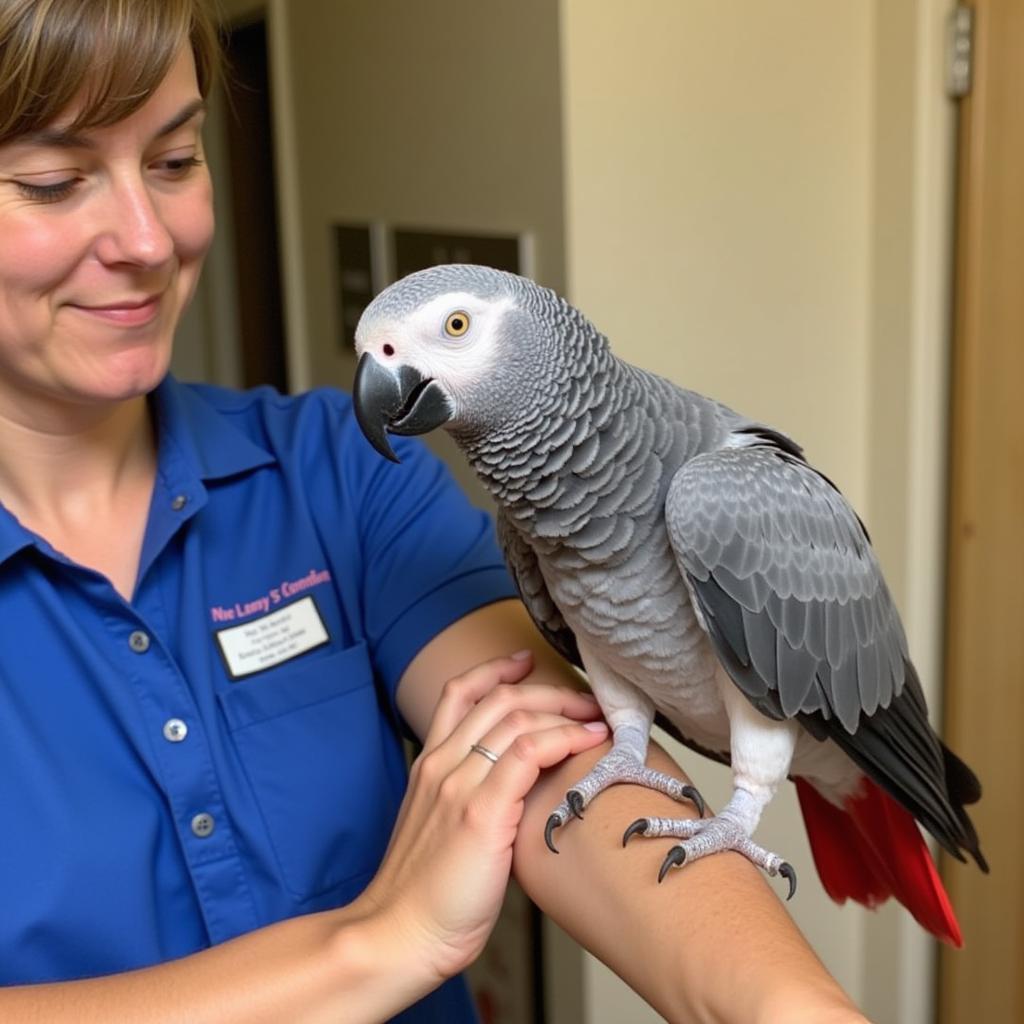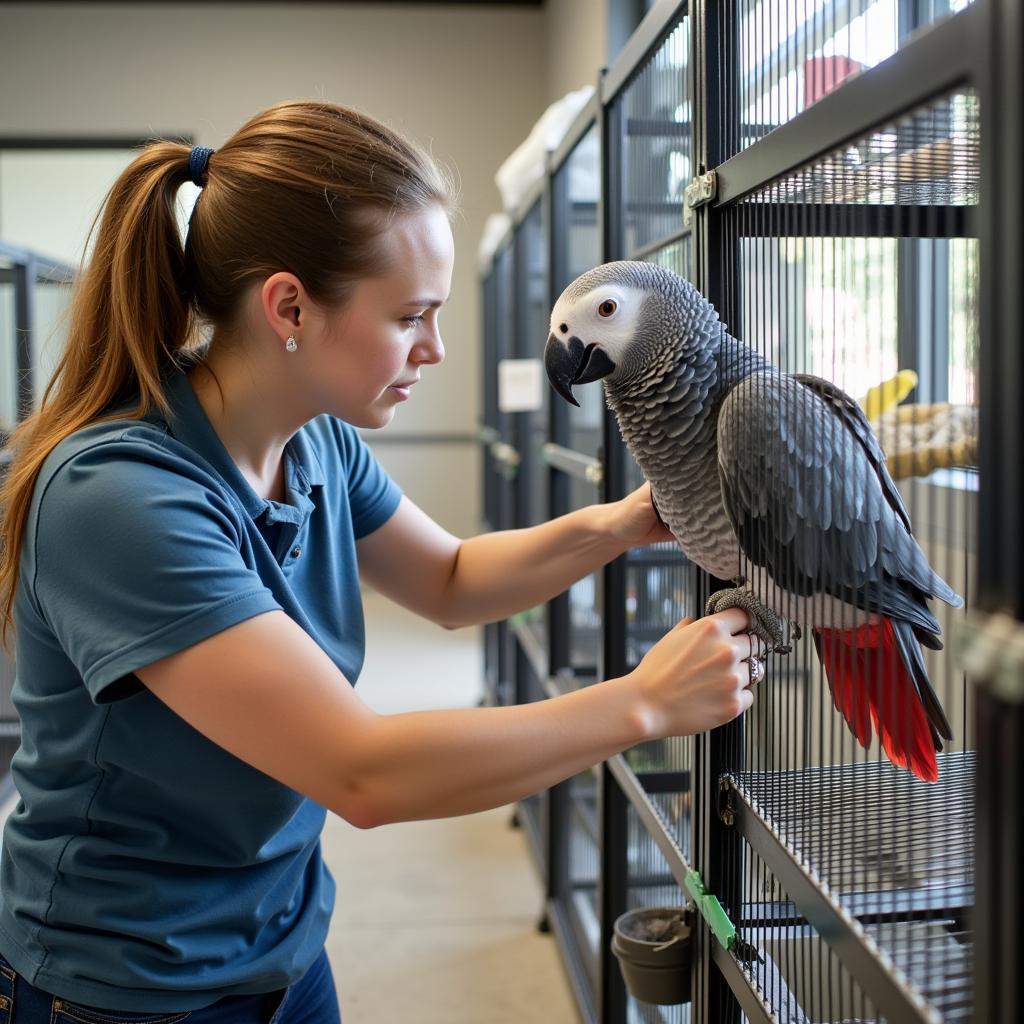Finding the Perfect African Grey Shelter
African Grey Shelters play a vital role in providing safe havens for these intelligent and sensitive birds. Whether you’re looking to adopt an African grey or are simply curious about these sanctuaries, understanding their importance is key. This article will delve into the world of African grey shelters, discussing their significance, what to look for, and how you can help.
Choosing the right african grey parrot care is crucial. These highly intelligent birds thrive in enriching environments. A quality shelter understands these needs and provides appropriate stimulation.
What to Look for in an African Grey Shelter
Several factors contribute to a reputable African grey shelter. Prioritizing these elements ensures the birds receive the best possible care.
- Cleanliness and Hygiene: The shelter should maintain a clean and sanitary environment to prevent disease and promote overall bird health. Observe the cages, perches, and surrounding areas for cleanliness.
- Enrichment and Stimulation: African greys require mental and physical stimulation. Look for shelters that provide toys, foraging opportunities, and social interaction.
- Knowledgeable Staff: The staff should be knowledgeable about African grey care, including their dietary needs, behavioral traits, and potential health issues. Don’t hesitate to ask questions about their experience and expertise.
- Proper Diet: A balanced diet is crucial for an African grey’s well-being. Inquire about the types of food offered, ensuring a variety of fruits, vegetables, pellets, and healthy nuts.
- Veterinary Care: A good shelter will have established relationships with avian veterinarians. Ask about their procedures for regular checkups and emergency care.
 African Grey Parrot in a Spacious Shelter Environment
African Grey Parrot in a Spacious Shelter Environment
The Importance of African Grey Shelters
African grey parrots often end up in shelters due to various circumstances, including owner surrenders, confiscations, and rescues. These shelters provide a vital service by:
- Providing a Safe Haven: Shelters offer a temporary or permanent home for African greys in need. They protect these birds from neglect, abuse, and unsuitable living conditions.
- Rehabilitation and Care: Many African greys arriving at shelters require rehabilitation, whether due to physical injuries, behavioral issues, or malnutrition. Shelters provide the necessary care and support to help them recover.
- Finding Suitable Homes: Shelters carefully screen potential adopters to ensure they can provide the proper care and environment for an African grey. This process helps match birds with loving and responsible owners.
- Educating the Public: Shelters often play a role in educating the public about responsible pet ownership, the specific needs of African greys, and the importance of conservation efforts.
 African Grey Parrot Interacting with Knowledgeable Staff
African Grey Parrot Interacting with Knowledgeable Staff
Are you considering adding an African grey to your family? African Grey Store and African Grey Parrot Price Petco might be resources for you.
How You Can Help African Grey Shelters
Supporting African grey shelters is crucial to their continued operation. There are several ways you can contribute:
- Donations: Financial contributions help shelters cover the costs of food, veterinary care, enrichment items, and facility maintenance. Even small donations can make a big difference.
- Volunteering: Donating your time and skills can be invaluable to a shelter. You can assist with cleaning cages, preparing food, socializing birds, and administrative tasks.
- Adoption: If you’re prepared to provide a loving home, consider adopting an African grey from a shelter. You’ll be giving a deserving bird a second chance at a happy life.
- Spreading Awareness: Educating others about the importance of African grey shelters and responsible pet ownership can help increase support and reduce the number of birds needing rescue.
 Volunteer Cleaning an African Grey Parrot Cage in a Shelter
Volunteer Cleaning an African Grey Parrot Cage in a Shelter
Considering other African species? You may find the African Banded Barb or African Sickle Fish interesting.
Conclusion
African grey shelters are vital for the well-being of these incredible birds. By understanding their importance and supporting their efforts, we can help ensure that African greys receive the care and protection they deserve. Finding the perfect African grey shelter can make all the difference for a bird in need.
FAQ
- What is the average lifespan of an African grey parrot? (African greys can live for 40-60 years, sometimes even longer.)
- What are the signs of a healthy African grey? (Bright eyes, smooth feathers, active behavior, and a healthy appetite are good indicators.)
- Do African greys require a lot of attention? (Yes, they are social creatures and need regular interaction and mental stimulation.)
- What kind of cage is best for an African grey? (A spacious cage with plenty of room to climb and play is essential.)
- Can African greys talk? (Yes, they are known for their exceptional ability to mimic human speech.)
- What should I feed my African grey? (A varied diet of pellets, fruits, vegetables, and healthy nuts is recommended.)
- How can I find a reputable African grey shelter near me? (Online directories and local avian veterinarians can often provide referrals.)
Other Questions You Might Have
- How can I prepare my home for an African grey?
- What are the common health problems in African greys?
- How can I train my African grey?
More Articles on Our Website
- Choosing the Right Cage for Your African Grey
- Understanding African Grey Behavior
- The Importance of Enrichment for African Greys
Need more assistance? Contact us at Phone: +255768904061, Email: [email protected] or visit us at Mbarali DC Mawindi, Kangaga, Tanzania. Our customer service team is available 24/7.
